Into History
The selection of films reflects both the history of cinema across genres and the history within cinema across the world.
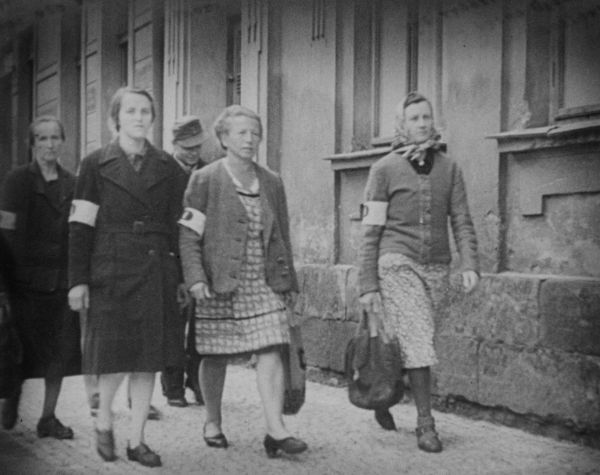
Expelling Germans, Shifting Power
A series of post-war films and radio reports provides an immediate view of population movements in liberated Czechoslovakia. Through them, the audience will become acquainted with the very economical and purposeful depiction of the expulsion of Germans in the media of the time. Although the displacement events were significantly reflected in the political language of the time, the media paid more attention to resettlement programmes, which in the Sudetenland were linked, among other things, to the immigration of re-emigrants. The series was created thanks to the co-operation of the Czech Radio Archive and the National Film Archive. It will be accompanied by commentary from its authors – Tomáš Dufka (AČRo) and Terezie Hlaváčková with Alena Šlingerová (both NFA).
director:
original title: Odsunout Němce, přesunout moc
running time: 83 min.
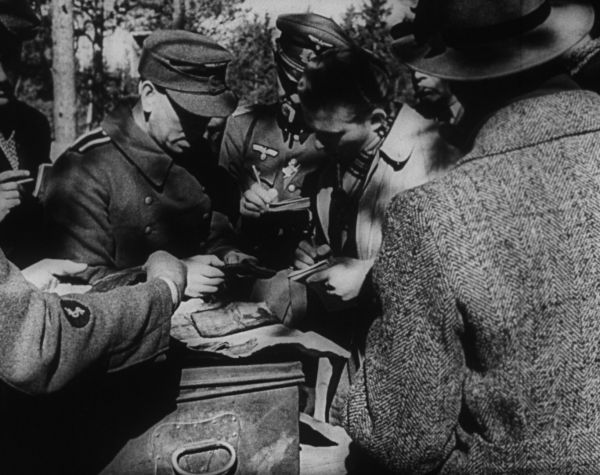
Katyn 1940–1943–1944: Tragedy in the captivity of propaganda
Národní filmový archiv, Prague, identified and handed over to the Polish FINA (Filmoteka Narodowa – Instytut Audiowizualny) a unique Polish version of the Nazi propaganda film In the Forest of Katyn (Im Wald von Katyn, 1943). On the occasion of the World Day of Audiovisual Heritage, the NFA, in cooperation with FINA, will present the context of its creation and the archival traces of this film with regard to its various versions. Part of the commented screening will also be the screening of the little-known film Tragedy in Katyn Forest (Tragedija v Katynskom lesu, 1944), through which the Soviet propaganda tried to tell the story of Katyn in their favor.In its second part, the program will also focus on the broader historical context and the Czech and Czechoslovak context of the events.Films and their archival life will be presented by film historian and NFA curator Iwona Łyko, the historical context will be presented by historian Michal Stehlík, and a representative of the civic association Katyňská rodina in the Czech Republic will also take part in the discussion.Projection:In the Forest of Katyn (F. Hippler, 1943) – Polish version, 9 minIm Wald von Katyn (1943) – German version (Vinnica part), 3 minTragedy in Katyn Forest (J. Poselskij, 1944) – 13 minThe program will take place on the occasion of UNESCO World Day for Audiovisual Heritage.Prepared in cooperation with the Katyn Museum in Warsaw and FINA.The films contain drastic images.
director:
original title: Katyň 1940–1943–1944: Tragédie v zajetí propagandy
year: 1944
running time: 90 min.
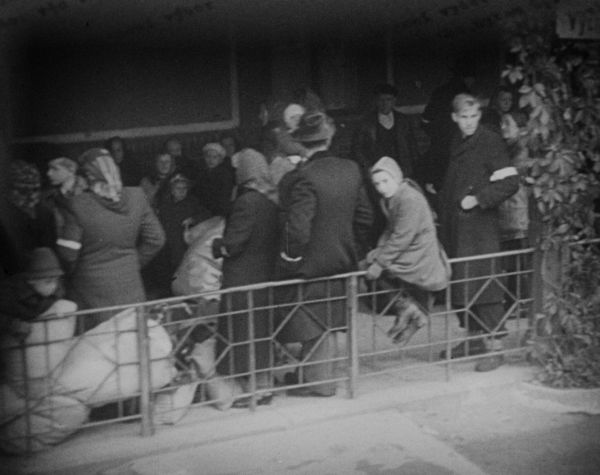
People Govern Themselves
This post-war film from the series Czechoslovak Film Chronicle shows the role of national committees in shaping the new face of the republic. Using the town of Úpice as an example, we follow their steps from managing transport and educating young people, to organizing the expulsion of Germans. The film is supplemented by archive footage, and commentary by radio announcer Stanislav Kozák.
director: Karel Baroch
original title: Lid si vládne sám
country: Czechoslovakia
year: 1946
running time: 10 min.
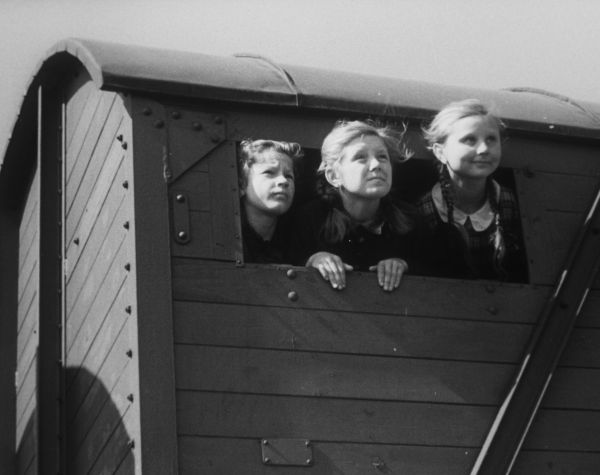
The Return of Volhynian Czechs
Based on an agreement with the USSR from July 1946 on the mutual resettlement of citizens, around 40,000 Volhynian Czechs moved to Czechoslovakia in 1947. The large-scale repatriation operation was not without complications. The short film also addresses these, but they remain overshadowed by the post-war optimism, with which the resettlers were sent to the depopulated borderlands.
director: Josef Pintner
original title: Návrat volyňských Čechů
country: Czechoslovakia
year: 1948
running time: 9 min.
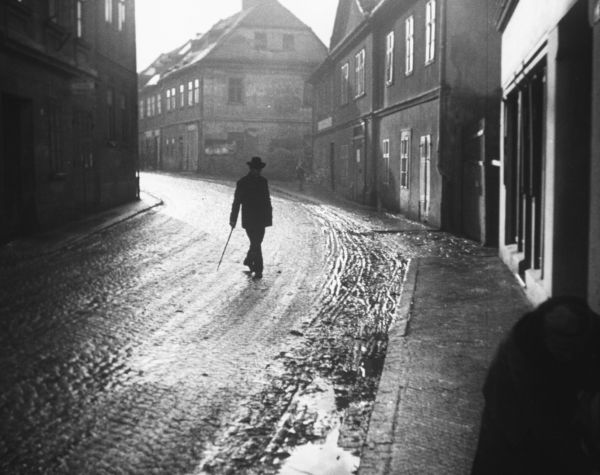
We Settle the Borderlands
The housing crisis and the expulsion of Germans – key issues in post-war Czechoslovakia – come together in this propaganda film, which combines documentary footage with humorous scenes. The film was intended to dispel the idea of the borderlands as the Wild West, and encourage those waiting for housing to settle in these areas. Like the hero of the film, they were to contact the Settlement Office in Prague.
director: Ivan Frič
original title: Osidlujeme pohraničí
country: Czechoslovakia
year: 1946
running time: 10 min.
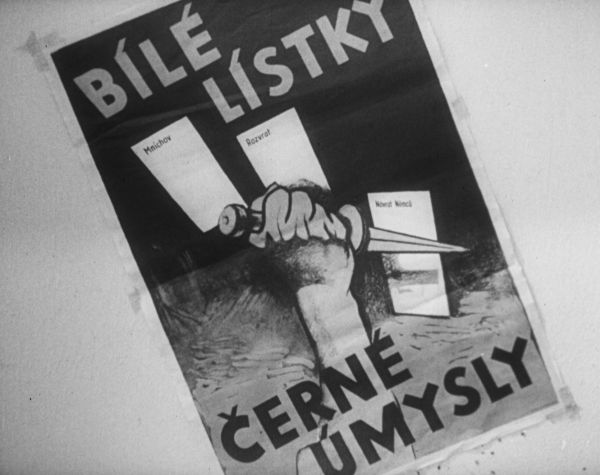
We Vote for a Happy Future
This propaganda film reflects the rhetoric of the 1948 election campaign. Through black-and-white contrasts, emotional appeals, and threats of a “return of the Germans,” it urges citizens to view the elections as a moral duty toward the future of the upcoming young generation.
director:
original title: Volíme šťastnou budoucnost
country: Czechoslovakia
year: 1948
running time: 8 min.










